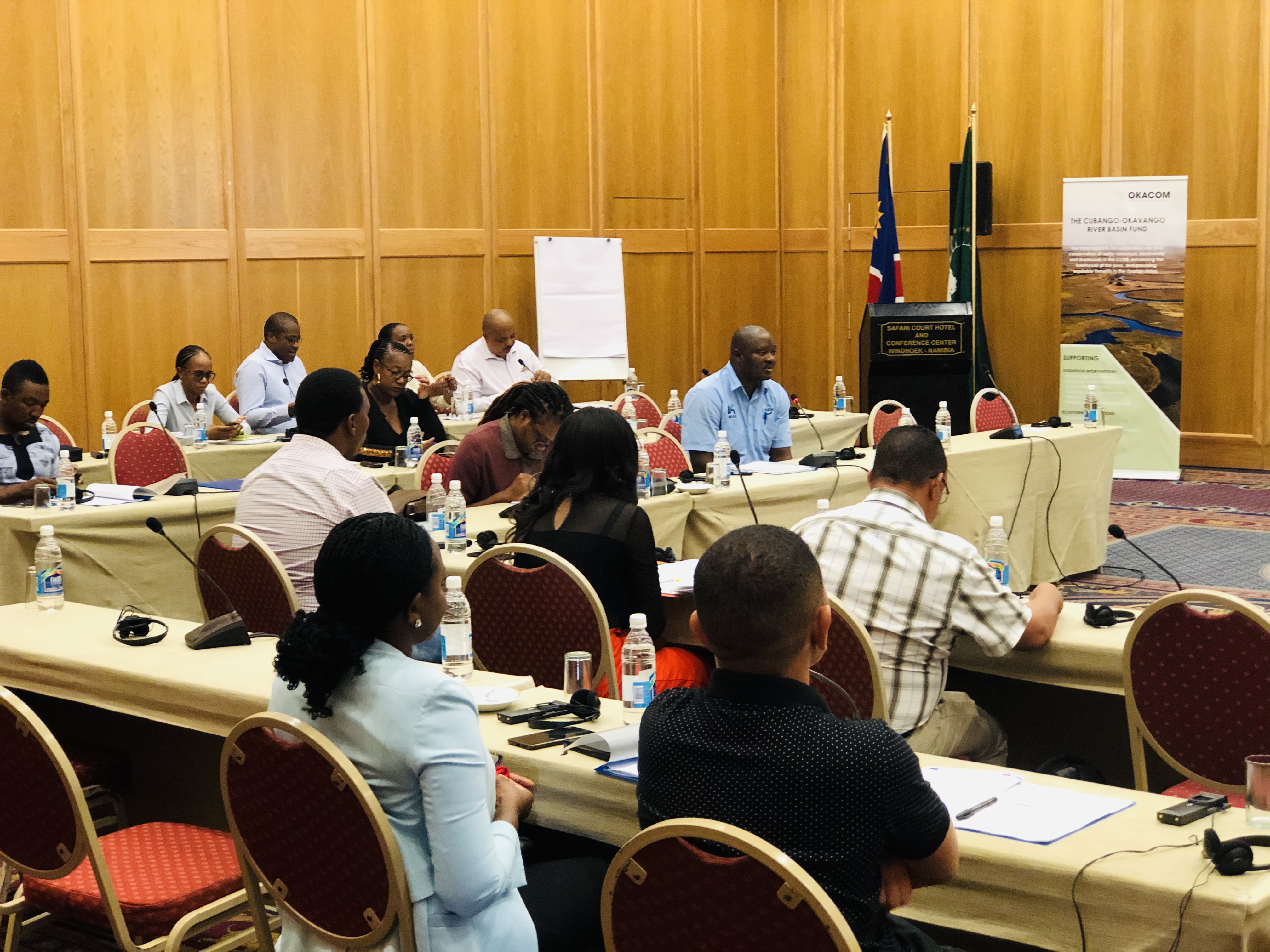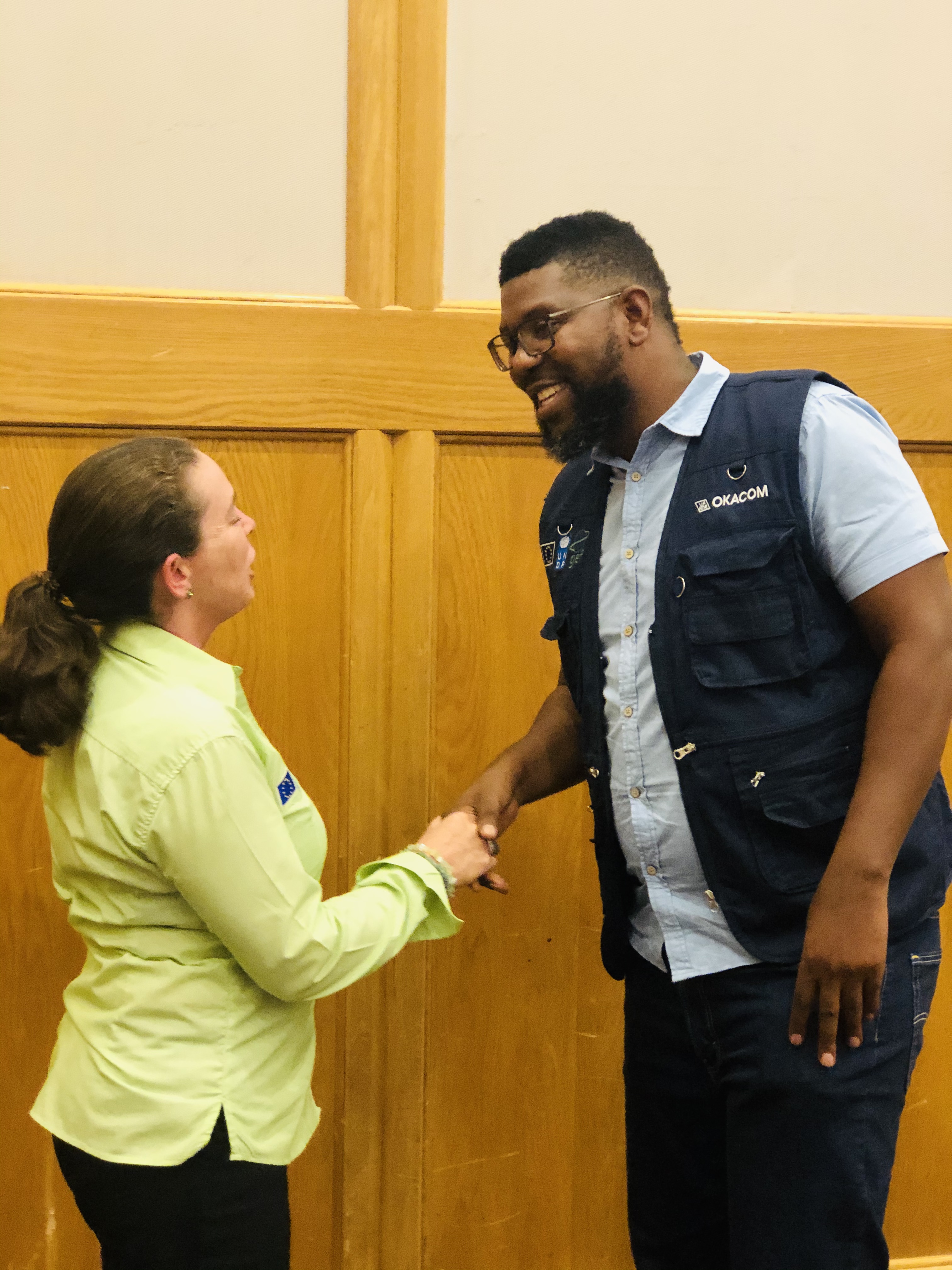- Home
- About Us
- Background
- Mandate
- Cubango Okavango River Basin
- Governance
- Strategy and Approach
- Member States
- Our Work
- Partners
- Climate Resilient Infrastructure Development Facility (CRIDF)
- European Union (EU)
- Southern African Development Community (SADC)
- Swedish International Development Cooperation Agency (SIDA)
- The World Bank (WB)
- United Nations Development Programme (UNDP)
- United States Agency For International Development (USAID)
- Resources
- News and Events
- Opportunities
- Contact Us
- FAQ's
- Connect With Us
- i
- t
- f

Regional Consultations on OKACOM Data Sharing Protocol
Wednesday, February 12, 2020


OKACOM with support from the European Union (EU) through the Technical Assistance for the Programme for Transboundary Water Management in the Cubango-Okavango River Basin (CORB) has been working to improve its data sharing procedures through consultations with the three member states of Angola, Botswana and Namibia. This is in line with the Basin Development Management Framework which recognises that in order to enable the member states to make informed decisions, basin-wide information sharing tools and a jointly agreed Decision Support Framework needs to be developed.
Currently, the 2010 OKACOM Protocol on Hydrological Data Sharing for the CORB is used as the data sharing framework which sets out guidelines for how the three member states collect, analyse and share data about the Basin’s water resources. However, this data sharing protocol remains greatly inefficient due to its limited scope as it promotes the sharing of hydrological data only. Hence, it does not provide for sufficient data sharing requirements and guidelines needed for the operational utility of the OKACOM Decision Support System (DSS).
Further to this, the present data sharing framework lacks clear definition of terms and procedures on key aspects of data sharing such as data ownership & access rights, data security, the various institutional roles and associated cost implications. The strengthening of the DSP was prioritised in order to meet the data needs of the OKACOM DSS and to strengthen OKACOM’s position of being a technical advisory body which supports decisions that are informed by accurate data, information and knowledge.
Following the national consultations, the first regional workshop on the DSP was held in October 2019 in Gaborone, Botswana and brought together members of the Okavango Basin Steering Committee (OBSC), the Water Resources Technical Committee (WRTC) and representatives from the three members states. At this workshop the draft DSP document was discussed and one of the key decisions during the discussions was to change to a one part DSP structure which will be comprised of the general rules and procedures and the relevant annexures.
As a follow up, a second regional workshop was held on 12 February 2020 in Windhoek, Namibia to further discuss any pending issues and report on progress. One key objective at the workshop was to gain consensus on which data parameters to include in the draft DSP, the level of detail for this list, given the disparity in the present level of data collection efforts among member states. Another key objective, was to gain consensus on the differing but vital timeframes for sharing time series data such as water level and discharge data in particular in the context of the result area on Flood Early Warning Systems (FEWS). There was also focus on reaching an agreement with regards to the technical requirements for determining various conditions for confidentiality of data.
The workshop ended with key consensus on the road map and an agreement on sharing of data on a quarterly and bi-annual basis. It was also agreed that a detailed list contained in the OKACOM EMF that is being developed. However, specific clauses be used to indicate which parameters will have to be shared immediately and which parameters will be shared progressively. Further to this, OKASEC will prepare a data list & propose level for OBSC consideration and endorsement by May 2020.
Thematic Areas & Activities
News
subscribe for news notification by email
Photo Credit: Kostatin Luchansky, National Geographic, Okavango Wilderness Project.
© [current-date:custom:Y] [site:name]

